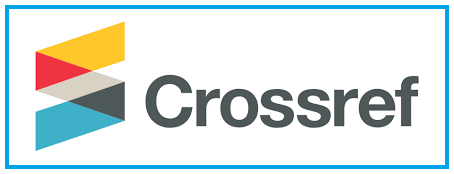GAMBARAN TINGKAT PERILAKU PHUBBING PADA MAHASISWA SARJANA FAKULTAS KEPERAWATAN UNIVERSITAS PADJADJARAN
Keywords:
Mahasiswa keperawatan, Phubbing, Perilaku phubbingAbstract
Phubbing merupakan perilaku mengabaikan seseorang dalam interaksi sosial dikarenakan lebih berfokus terhadap penggunaan smartphone. Mahasiswa keperawatan termasuk kelompok usia Generasi Z yang merupakan generasi berpotensi melakukan perilaku phubbing dikarenakan sangat akrab dengan smartphone dan internet. Penelitian ini bertujuan untuk mengetahui gambaran tingkat perilaku phubbing pada mahasiswa sarjana Fakultas Keperawatan Universitas Padjadjaran. Penelitian ini menggunakan metode deskriptif kuantitatif. Populasi penelitian ini adalah mahasiswa sarjana Fakultas Keperawatan Universitas Padjadjaran (N=784). Teknik sampling menggunakan stratified random sampling sehingga diperoleh sampel sebanyak 261 mahasiswa. Data dikumpulkan menggunakan kuesioner Generic Scale of Phubbing (GSP) dengan media google form. Hasil data menggunakan analisis deskriptif univariat. Hasil penelitian menunjukkan bahwa sebagian besar responden 156 (59,8%) mengalami perilaku phubbing kategori sedang, sebanyak 102 responden (39,1%) mengalami perilaku phubbing kategori rendah, dan 3 responden (1,1%) mengalami kategori tinggi. Apabila didasarkan pada dimensinya, hampir setengahnya mengalami nomophobia sedang (48,3%), hampir seluruhnya mengalami interpersonal conflict rendah (79,7%) dan self isolation rendah (90,8%), serta sebagian besar (59,8%) mengalami problem acknowledgement sedang (59,8%). Simpulan penelitian ini menunjukan sebagian besar tergolong kedalam tingkat perilaku phubbing kategori sedang. Peneliti menyarankan kepada pihak Fakultas Keperawatan Universitas Padjadjaran untuk dapat memberikan pendidikan kesehatan tentang dampak perilaku phubbing dan mengatur penggunaan smartphone dalam konteks pendidikan.
Downloads
References
Alamianti, D., & Rachaju, R. D. K. (2021). Realitas Phone Snubbing pada Pergaulan Remaja. Jurnal Audience, 4(02), 209–220. https://doi.org/10.33633/ja.v4i2.4256
Amelia, T., Despitasari, M., Sari, K., Putri, D. S. K., Oktamianti, P., & Agustina. (2019). Phubbing, Causes and Impacts on Faculty of Public Health students, University of Indonesia. Jurnal Ekologi Kesehatan, 18(2), 122–134.
Aulia, H. D. (2022). Gambaran Self-Perceived Communication Competence pada Mahasiswa Fakultas Keperawatan Universitas Padjadjaran di Masa Pandemi COVID-19. Skripsi. Bandung: FKEP UNPAD.
Azka, F., Firdaus, D. F., & Kurniadewi, E. (2018). Kecemasan Sosial dan Ketergantungan Media Sosial pada Mahasiswa. PSYMPATHIC : Jurnal Ilmiah Psikologi, 5(2), 201–210. https://doi.org/10.15575/psy.v5i2.3315
Azwar, S. (2012). Penyusunan Skala Psikologi Edisi 2. Yogyakarta: Pustaka Pelajar.
Bitar, Z., Akel, M., Salameh, P., Obeid, S., & Hallit, S. (2022). Phubbing among Lebanese young adults: Scale validation and association with mental health (depression, anxiety, and stress). Current Psychology, 1–12. https://doi.org/10.1007/s12144-022-03104-z
Błachnio, A., & Przepiorka, A. (2019). Be Aware! If You Start Using Facebook Problematically You Will Feel Lonely: Phubbing, Loneliness, Self-esteem, and Facebook Intrusion. A Cross-Sectional Study. Social Science Computer Review, 37(2), 270–278. https://doi.org/10.1177/0894439318754490
Chi, L. C., Tang, T. C., & Tang, E. (2022). The phubbing phenomenon: a cross-sectional study on the relationships among social media addiction, fear of missing out, personality traits, and phubbing behavior. Current Psychology, 41(2), 1112–1123. https://doi.org/10.1007/s12144-021-02468-y
Chotpitayasunondh, V., & Douglas, K. M. (2016a). How ‘phubbing’ becomes the norm: The antecedents and consequences of snubbing via smartphone. Computers in Human Behavior, 63, 9–18. https://doi.org/10.1016/j.chb.2016.05.018
Chotpitayasunondh, V., & Douglas, K. M. (2016b). How “phubbing” becomes the norm: The antecedents and consequences of snubbing via smartphone. Computers in Human Behavior, 63, 9–18. https://doi.org/10.1016/j.chb.2016.05.018
Chotpitayasunondh, V., & Douglas, K. M. (2018). Measuring phone snubbing behavior: Development and validation of the Generic Scale of Phubbing (GSP) and the Generic Scale of Being Phubbed (GSBP). Computers in Human Behavior, 88, 5–17. https://doi.org/10.1016/j.chb.2018.06.020
Davey, S., Davey, A., Raghav, S. K., Singh, J. V., Singh, N., Blachnio, A., & Przepiórkaa, A. (2018). Predictors and consequences of ‘Phubbing’ among adolescents and youth in India: An impact evaluation study. Journal of Family and Community Medicine, 25(1), 35–42. https://doi.org/10.4103/jfcm.JFCM_71_17
Ergün, N., Göksu, İ., & Sakız, H. (2020). Effects of Phubbing: Relationships With Psychodemographic Variables. In Psychological Reports (Vol. 123, Issue 5). https://doi.org/10.1177/0033294119889581
Erzen, E., Odaci, H., & Yeniçeri, İ. (2021). Phubbing: Which Personality Traits Are Prone to Phubbing? Social Science Computer Review, 39(1), 56–69. https://doi.org/10.1177/0894439319847415
Guazzini, A., Duradoni, M., Capelli, A., & Meringolo, P. (2019). An Explorative Model to Assess Individuals’ Phubbing Risk. Future Internet, 11(21), 1–13. https://doi.org/10.3390/fi11010021
Hafizah, N., Adriansyah, M. A., & Permatasari, R. F. (2021). Kontrol Diri dan Komunikasi Interpersonal Terhadap Perilaku Phubbing. Psikoborneo: Jurnal Ilmiah Psikologi, 9(3), 630–645. https://doi.org/10.30872/psikoborneo
Han, J. H., Park, S. J., & Kim, Y. (2022). Phubbing as a Millennials’ New Addiction and Relating Factors Among Nursing Students. Psychiatry Investigation, 19(2), 135–145. https://doi.org/10.30773/pi.2021.0163
Hapsari, L. R. (2021). Keefektifan Pendekatan Cognitive Behavior Therapy untuk Mengurangi Perilaku Phubbing pada Peserta Didik Kelas VIII SMP Negeri 1 Banyudono Tahun Pelajaran …. Jurnal Psikoedukasi Dan Konseling, 5(1).
Haro, B., Beranuy, M., Vega, M. A., Calvo, F., & Carbonell, X. (2022). Problematic smartphone use and gender differences in vocational education and training. Educación XX1, 25(2), 271–290. https://doi.org/10.5944/educxx1.31492
Haug, S., Paz Castro, R., Kwon, M., Filler, A., Kowatsch, T., & Schaub, M. P. (2015). Smartphone use and smartphone addiction among young people in Switzerland. Journal of Behavioral Addictions, 4(4), 299–307. https://doi.org/10.1556/2006.4.2015.037
Hulukati, W., & Djibran, M. R. (2018). Analisis Tugas Perkembangan Mahasiswa Fakultas Ilmu Pendidikan Universitas Negeri Gorontalo. Jurnal Bikotetik (Bimbingan Dan Konseling: Teori Dan Praktik), 2(1), 73–80.
Ilma’nunah, L. (2021). Layanan Bimbingan Dan Konseling Pribadi Untuk Mereduksi Kecenderungan Perilaku Phubbing. Skripsi. Bandung: Bimbingan Konseling UPI.
Karadaǧ, E., Tosuntaş, Ş. B., Erzen, E., Duru, P., Bostan, N., Şahin, B. M., Çulha, I., & Babadaǧ, B. (2015). Determinants of phubbing, which is the sum of many virtual addictions: A structural equation model. Journal of Behavioral Addictions, 4(2), 60–74. https://doi.org/10.1556/2006.4.2015.005
Kementerian Kesehatan RI. (2017). Situasi Tenaga Keperawatan Indonesia : Pusat Data dan Informasi Kementerian Kesehatan RI. ISSN 2442-7659.
Lai, X., Hu, C., Ying, L., Xu, H., Zhao, C., Yang, X., Yu, X., & Zhang, G. (2022). Risk and Protective Factors Associated With Smartphone Addiction and Phubbing Behavior Among College Students in China. Psychological Reports, 0(0), 1–18. https://doi.org/10.1177/00332941221084905
Lv, S., & Wang, H. (2023). The Effect of College Students’ Boredom Proneness on Phubbing: The Chain-Mediating Effects of Fear of Missing Out and Online Vigilance. Perspectives in Psychiatric Care, 2023, 9713789. https://doi.org/10.1155/2023/9713789
Mawarpury, M.-, Maulina, S., Faradina, S., & Afriani, A. (2020). Kecenderungan Adiksi Smartphone Ditinjau Dari Jenis Kelamin Dan Usia. Psikoislamedia : Jurnal Psikologi, 5(1), 24. https://doi.org/10.22373/psikoislamedia.v5i1.6252
Normawati, Maryam, S., & Priliantini, A. (2018). Influence of the Campaign “Let’S Disconnect To Connect” on Anti-Phubbing Attitude (Survey in Line Starbucks Indonesia Official Account Followers). Jurnal Komunika : Jurnal Komunikasi, Media Dan Informatika, 7(3), 155–164. https://doi.org/10.31504/komunika.v7i3.1665
O’Flaherty, R. (2019). Connected by Technology, Empathetically Disconnected: A Correlational study into Phubbing Behaviour in Ireland. 1–23.
Parus, M. S., Adu, A. A., & Keraf, M. K. P. A. (2021). Phubbing Behavior and Quality of Friendship in Faculty of Public Health, Nusa Cendana University. Journal of Health and Behavioral Science, 3(1), 13–23. https://doi.org/10.35508/jhbs.v3i1.3031
Phing, A. M., Xin, C. Y., & Jun, L. P. (2019). The Impact Of Loneliness And Fear Of Missing Out In Predicting Phubbing Behaviour Among Undergraduates In Malaysia. (Doctoral dissertation, UTAR).
Putri, A. I. D., & Halimah, L. (2019). Hubungan FoMO (Fear of Missing Out) dengan Adiksi Media Sosial pada Mahasiswa Pengguna Instagram di Universitas Islam Badung. Prosiding Psikologi, 5(1967), 303–309.
Rachman, A. (2021). The Effect of Social Media Addiction on Student Phubbing Behavior. International Journal of Arts and Social Science, 4(3), 113–117.
Roberts, J. A., & David, M. E. (2016). My life has become a major distraction from my cell phone: Partner phubbing and relationship satisfaction among romantic partners. Computers in Human Behavior, 54, 134–141. https://doi.org/10.1016/j.chb.2015.07.058
Rosdiana, Y., & Hastutiningtyas, W. R. (2020). Hubungan Perilaku Phubbing Dengan Interaksi Sosial Pada Generasi Z Mahasiswa Keperawatan Universitas Tribhuwana Tunggadewi Malang. Jurnal Kesehatan Mesencephalon, 6(1). https://doi.org/10.36053/mesencephalon.v6i1.194
Sun, J., & Samp, J. A. (2021). ‘Phubbing is happening to you’: examining predictors and effects of phubbing behaviour in friendships. Behaviour and Information Technology. https://doi.org/10.1080/0144929X.2021.1943711
Ugur, N. G., & Koc, T. (2015). Time for Digital Detox: Misuse of Mobile Technology and Phubbing. Procedia - Social and Behavioral Sciences, 195, 1022–1031. https://doi.org/10.1016/j.sbspro.2015.06.491
Wijoyo, H., Indrawan, I., Cahyono, Y., Handoko, A. L., & Santamoko, R. (2020). Generasi Z & Revolusi Industri 4.0. Banyumas: CV. Pena Persada.
Youarti, I. E., & Hidayah, N. (2018). Perilaku Phubbing Sebagai Karakter Remaja Generasi Z. Jurnal Fokus Konseling, 4(1), 143. https://doi.org/10.26638/jfk.553.2099
Downloads
Published
How to Cite
Issue
Section
License
Copyright (c) 2024 Try Silvia Afaf Meilan, Nita Fitria, Iceu Amira DA

This work is licensed under a Creative Commons Attribution-ShareAlike 4.0 International License.









